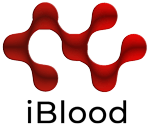History
HOW IT ALL BEGAN
There has been a long tradition of excellence in Hematology at the University of Heidelberg. Over the course of the last 15 years, both basic and clinical hematology-focused research has been progressively strengthened in Heidelberg via the external recruitment of a number of internationally renowned investigators and the ongoing seeding of junior research groups, several of which have subsequently emerged as new national and international leaders in the field.
The growing critical mass of hematology-focused faculty has been reflected by their representation on several funded consortium grants (such as SFB873, FOR 2674); the high frequency of symposia and seminars that have hematology focused content delivered by local and external international leaders in the field; the numerous leadership roles that Heidelberg-based investigators hold in major international hematology societies, such as the American Society of Hematology, the European Hematology Association, the Bioiron Society and the International Society for Experimental Hematology (ISEH); and highly visible research output regularly published in top tier journals.
However, there is no formally recognized structure to facilitate collaborative interactions across these groups. As a natural consequence of this build up of faculty, grassroots initiatives have emerged during the last years based on the shared desire to create and nurture a functional hematology community in Heidelberg.
Blood Club
The “Blood Club” was initiated in 2012, as an informal bi-weekly seminar series, to promote increased interaction amongst scientists working at different institutions and departments (www.leukemia-heidelberg.de/events/blood-club).
The goal is to foster new working relationships by promoting interactions between research trainees. Clinical education seminars are now incorporated to help further bridge clinical and basic research by providing a base knowledge of hematologic disease; current therapeutic strategies; and unmet clinical needs that may prove a fruitful target for forward and reverse translational research.
The Blood Club has gradually grown to encompass more than 30 research groups spanning the University Clinics in Heidelberg and Mannheim, as well as the NCT, DKFZ, EMBL, BioQuant and HI-STEM, and typically has in excess of 50 attendees.
Next Event
HeLeNe – Heidelberg Leukemia Network
We launched the Heidelberg Leukemia Network (HeLeNe) in 2017 as a complementary initiative to further strengthen clinical and basic hematology research in the Heidelberg area (https://www.leukemia-heidelberg.de/). This network has held a launch meeting in 2017 and annual research meetings in 2018 and 2019 (with more than 75 participants in each) and a hybrid/virtual research symposium in Sep. 2020.
As an international outreach, we teamed up with the Haematology Department of the University of Oxford. At each Annual Retreat, one faculty member from Oxford presented data and discussed/evaluated science with the HeLeNe participants. Faculty and student exchanges are envisioned. One of the major developments that was initiated in early 2018 as a central hub of HeLeNe, was the creation of a central biobanking system, which is accumulating viable bone marrow and cord blood cells from healthy individuals and patients with an array of hematologic diseases. As the biobank has progressively grown, a data warehouse structure has been created in parallel, in order to facilitate the systematic integration of all data from the clinical department gathered during the last 10 years and cross reference this with research data as it is generated.
Along with the many leukemia cell lines and genetic mouse models that are used to study hematology on campus, the biobank and data warehouse represent a rich resource that can be employed by future iBLOOD members for the exploration of biological phenomena in the context of normal and diseased hematopoiesis as well as fundamental processes to be studied in primary human cells.
From HeLeNe to iBLOOD
We envision that iBLOOD will be the successor of HeLeNe. Whereas HeLeNe is predominantly focused on malignant hematopoiesis, iBLOOD will have a much broader scope, and, in addition, also encompass work on non-malignant hematologic diseases, and research that uses the blood system as a model to address fundamental questions that are the focus of Heidelberg faculty who have not yet previously considered working in this area.

